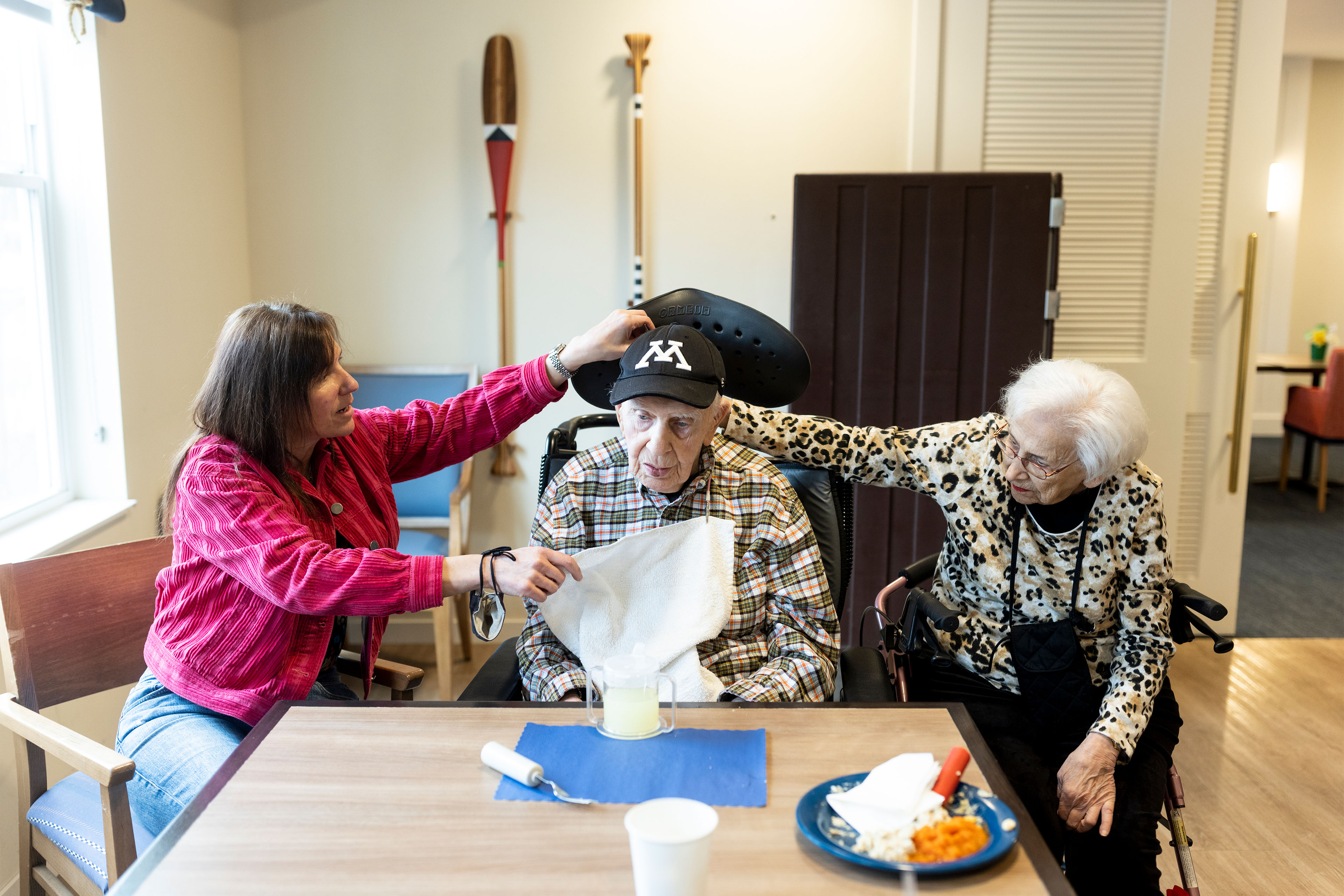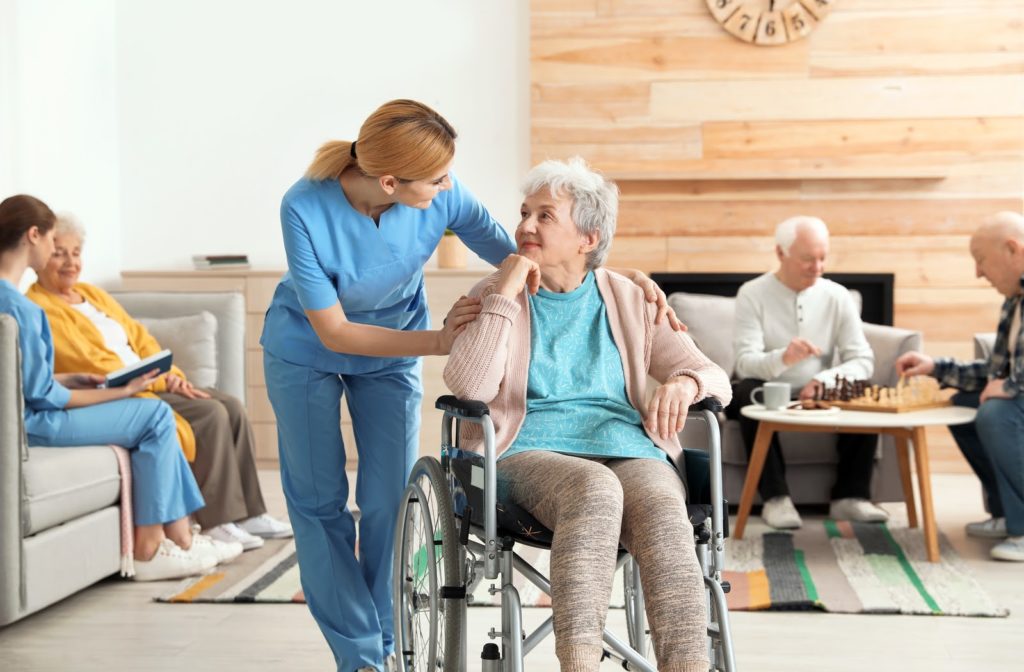Compare Memory Care options for families seeking compassionate support.
Compare Memory Care options for families seeking compassionate support.
Blog Article
The Role of Assisted Residing In Offering Specialized Take Care Of Mental Deterioration Patients
The arrangement of specialized take care of mental deterioration patients within nursing home is progressively identified as a vital component of efficient mental deterioration monitoring. These settings are designed to deal with the special cognitive and psychological obstacles encountered by people with mental deterioration, offering tailored support that promotes safety and well-being. By integrating structured routines and engaging activities, assisted living can mitigate feelings of isolation while enhancing overall lifestyle. However, the efficiency of these programs typically depends upon different elements, including staff training and family involvement, motivating a more detailed exam of just how these components engage to enhance care outcomes.
Understanding Mental Deterioration Care Demands
Understanding the treatment needs of people with dementia is critical for supplying effective support and improving their lifestyle. Mental deterioration is a modern neurological condition that impacts cognitive functions such as memory, thinking, and interaction. People with dementia commonly require support with day-to-day activities, customized treatment strategies, and emotional support.
Reliable dementia care includes identifying the unique difficulties encountered by each person. This includes understanding the phases of mental deterioration, which can vary from mild cognitive disability to innovative phases calling for extensive help. Treatment requires might incorporate support in managing daily routines, medicine adherence, and keeping social interactions to stop seclusion.
In addition, sensory excitement and acquainted settings can significantly enhance the well-being of individuals with dementia. Caregivers should be trained to identify behavioral changes and employ techniques tailored to each person's preferences and previous experiences. Techniques such as validation treatment and memory can aid connect properly and cultivate a feeling of safety and security.
Inevitably, effectively dealing with the care needs of individuals with mental deterioration calls for a thoughtful technique, continuous training for caregivers, and a commitment to maintaining self-respect and regard throughout the caregiving process.
Benefits of Assisted Living

Another considerable benefit is the safe and safe setting these facilities supply. Residents take advantage of attributes such as secured entrances and checked common areas, lowering the risk of roaming and boosting overall security. Assisted living advertises social interaction among citizens, cultivating a sense of area and belonging. Involving with peers can reduce sensations of isolation, which prevail in those coping with dementia.
Furthermore, numerous nursing home supply aid with daily activities, such as medication management, bathing, and meal preparation. This support enables citizens to preserve their self-reliance while guaranteeing their wellness and health are focused on. Eventually, assisted living functions as a useful resource, balancing care and autonomy for individuals with mental deterioration and their households.

Specialized Programs and Tasks
(Dementia Care Charlotte)Acknowledging the special demands of people with mental deterioration, lots of assisted living centers carry out specific programs and activities developed to enhance cognitive function and advertise total wellness. These programs commonly include cognitive stimulation activities that involve homeowners in memory video games, challenges, and reminiscence treatment, which urges the sharing of individual tales and past experiences.
Additionally, art and songs therapy play substantial functions in cultivating imagination and emotional expression (Memory Care). Engaging homeowners in painting, crafting, or songs sessions can offer healing benefits, aiding to decrease anxiety and enhance state of mind. Physical tasks, such as mild exercises and dancing sessions, are also critical, as they promote flexibility and physical health and wellness while urging social interaction amongst residents
Organized day-to-day routines are usually established to supply a feeling of stability and predictability for people with dementia. These routines can consist of scheduled meal times, team tasks, and personalized treatment strategies that satisfy private passions and abilities. By producing an improving environment loaded with customized tasks, assisted living facilities not just boost the lifestyle for dementia individuals yet also promote a feeling of area and belonging.
Educated Staff and Support
(Dementia Care Charlotte)In assisted living centers, the presence of skilled staff is critical for offering effective support to people with dementia. These specialists possess specialized expertise and skills to attend to the unique requirements of residents, ensuring their safety and security, comfort, and health. Employee receive training in mental deterioration treatment, which includes understanding the progression of the condition, recognizing behavioral adjustments, and utilizing efficient interaction techniques.
In addition, trained personnel are equipped to implement tailored care plans tailored to every citizen's choices and abilities. This individualized technique cultivates a feeling of freedom and self-respect, allowing locals to engage in significant tasks that boost their top quality of life. The team also play an important function in checking wellness and health, without delay identifying any changes in condition that might need clinical interest.
Along with guide care, qualified personnel offer emotional support to residents, helping to reduce feelings of confusion and anxiety that often accompany mental deterioration. Their thoughtful strategy produces a nurturing environment where residents really feel valued and recognized - Memory Care. Eventually, the experience and devotion of skilled personnel are essential in delivering comprehensive treatment that satisfies the complicated needs of people dealing with dementia in assisted living settings
Family Members Participation and Resources
Family participation plays a substantial function in the care of people with mental deterioration in nursing home. Involving relative in the treatment process not just improves the emotional health of the local yet additionally promotes a collaborative setting where treatment plans can be customized to specific requirements. Families can give useful insights right into the preferences, background, and habits of their loved ones, which can educate caregivers and bring about more tailored care approaches.
Additionally, assisted living centers typically offer resources for family members, such as support system and academic workshops. These resources can assist families recognize dementia, boost communication approaches, and develop coping devices. Involvement in these programs can empower member of the family, furnishing them with the devices required to sustain their loved ones successfully.
Additionally, regular communication in between families and personnel is critical. This ongoing dialogue permits families to stay educated about their loved one's development and any kind of modifications in treatment plans. Eventually, a strong collaboration in between family members and assisted living facilities fosters an atmosphere of depend on and understanding, making certain that people with dementia receive the specialized care they deserve while maintaining their family connections.
Conclusion
Finally, helped living facilities play a crucial function in attending to the special requirements of dementia clients with customized care and support. By cultivating secure settings, advertising social communication, and executing organized regimens, these centers improve the general well-being of residents. The involvement of experienced team and households even more enriches the treatment experience, making sure that private preferences and histories are valued. Eventually, assisted living offers vital resources that significantly boost the Read Full Article high quality of life for those living with mental deterioration.
Report this page